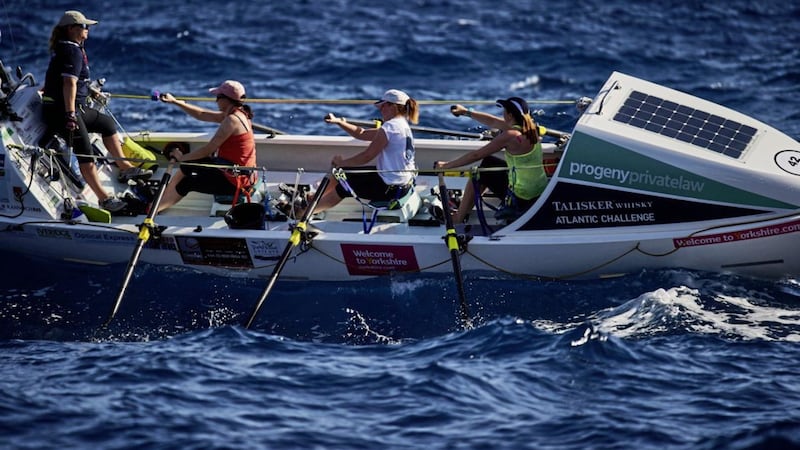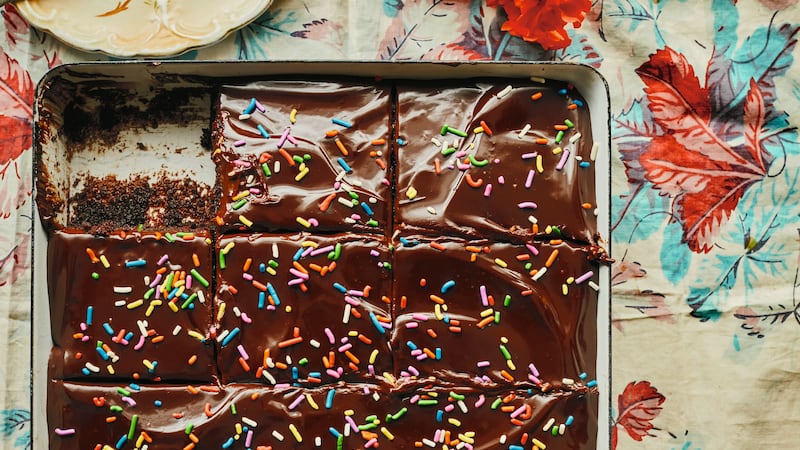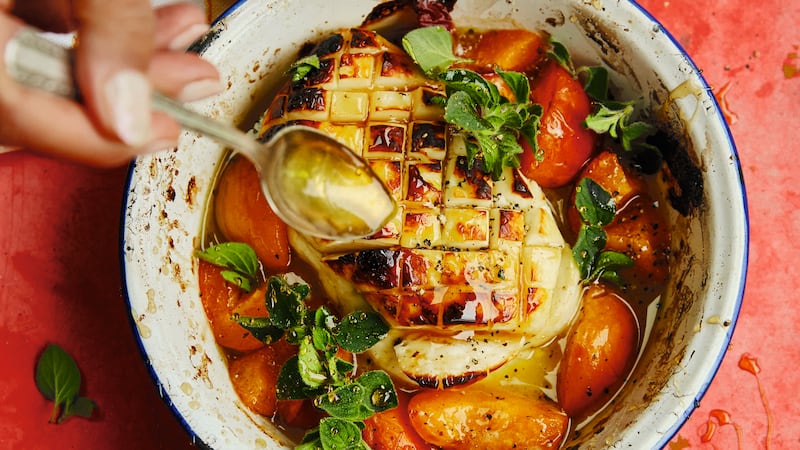THEY used to meet on the school run – but the friendship between four ordinary women facing extraordinary circumstances was sealed on the water. When Janette Benaddi, Niki Doeg, Helen Butters and Frances Davies – all mums (they have eight children between them) with full-time jobs and households to run – joined the same Saturday morning rowing club, braving Yorkshire's freezing River Ouse week in week out, the idea of a greater challenge was spawned.
The foursome, then aged between 44 and 50, pledged to row 3,000 miles, from La Gomera in the Canary Islands to Antigua in the Caribbean, in the 2015 Talisker Whisky Atlantic Challenge, a feat that would earn them a Guinness World Record as the oldest all-female crew to row across any ocean.
Janette, now 52, a Leeds businesswoman and former nurse – and team skipper, recalls: "People say, 'Why the heck?', but I suppose the question is, 'Why not?'"
It took three years from the idea emerging to the row itself, as the 'Yorkshire Rows' team had a lot to organise, plus a gruelling training regime to get through.
"I was the worst of the four of us in terms of fitness," Janette recalls. "I gave up hockey when I was 40 and was 50 when we set off. I don't like the gym, so I was thrown in at the deep end."
So, after a period of getting fit, practice rowing, raising money, winning over sponsors and getting the right boat, called Rose, they were off.
On day one, there were mixed emotions.
"I was leaving family and friends and knew little about the big wide ocean. I was excited, I was nervous and was wondering what we'd face out there. I have this phobia about sharks, so I was worried about that," Janette recalls.
While the other women did see the odd shark, Janette didn't. But there were worse things to come – hurricane-force winds, 60ft waves, giant shipping tankers threatening to take out their little boat – as well as the difficulties of day-to-day living, the buckets they used as toilets in full view of each other, the pressure sores on their butts, the blisters on their hands and feet, the constantly wet clothes and monotonous diet of freeze-dried high-energy meals
"There were no comforts," Janette recalls. "But when you're caught in a very difficult situation, you either sink or swim. The four of us are very strong women. We always believed we would get there."
She recalls that of the few treats they took on board, the Chocolate Orange which she and Frances devoured during a hurricane was probably the most delicious thing she'd ever tasted.
Niki damaged her coccyx three days into the trip, suffered from terrible seasickness and became very low at times, missing her family, but the others lifted her spirits. At Christmas, Janette presented them all with letters from their families back home, which she had secretly organised and squirrelled away until the time was right.
"The first big high for me was when Janette handed over the letters from family on Christmas Day," Niki recalls. "It was very emotional and there were lots of tears."
On the small rowing boat with two cabins – one which was used as an office with navigational equipment – the women would row two hours on, two hours off, day and night for two-and-a-half months.
Janette suffered from hallucinations and Niki developed septic fingernails, which Janette had to lance. But they had a stack of antibiotics on board for infections.
"Poor Niki got the brunt of bad things, including flying fish slapping her in the face or on the back," Janette recalls.
Danger was never far away. At one point, Helen was thrown across the boat and collided with a sharp screw, which sliced through her scalp. Impossible to suture in the choppy conditions, Janette stuck the wound together with plaster stitches.
During a Force 12 hurricane, the women had to batten down the hatches, Frances and Janette in the office, Niki and Helen in the cabin. It was then that Niki's claustrophia kicked in.
"For me, getting in the cabin in the hurricane was terrible – I would rather be sat outside. It built up over time. To go into the cabin with its tiny units, sealing myself in, and the heat, I'd hyperventilate and have problems breathing. At times I thought I wasn't going to be able to get past the fear of claustrophobia, whereas some of the other girls had issues with waves at night."
They describe the waves as 'terrifying'. "Rose was lifted out of the water and then dropped from a great height over and over again, and we were thrown out of our small beds and spun around like socks in a washing machine," they write.
During the hurricane, they spent 70 hours locked in their cabins, developed headaches from dehydration and lack of oxygen. Frances and Janette had to start taking analgesics to deal with the muscle cramps and back pain.
But there were gloriously quiet moments too, the vivid sunsets, the glittering stars, the whales and other wildlife gliding past.
"At night, there would be these big waves and stars would be out. There was no light pollution, as we had no lights on the boat. You felt like you could put your hand out into the stars and you'd reach to them. It was magical at night," Niki recalls.
They were able to contact their families via satellite phone, but went for around 40 consecutive days without seeing anyone – the safety yacht visited their boat twice to make sure they were all right.
Unsurprisingly, they all lost weight on the voyage, with Janette shedding two stones. Their calf muscles withered through not walking, although their thighs were strong, and their fingers felt arthritic through gripping the oars for hours a day.
"Even when I got off the boat, it took eight months before I could put my wedding ring back on because my fingers were still very swollen," Janette recalls. It also took around 10 months for all the sores and callouses to disappear.
After 68 days at sea, they finished the journey battered and bruised, but with an inner strength which has endured.
"I do think we are very close together and we'll always have that special bond," Helen writes. "After a few weeks, some kind of adrenalin hangover set in which was difficult to shake off," says Janette. "I started to question life more. I started to think, 'What can I do now? I want to make more memories, I want to enjoy life more'. But now I'm much more patient, and relaxed and calmer than I've ever been."
Film and TV rights to the book have been optioned, so their story may be relayed on screen in the future. Meanwhile, the women, who see each other two or three times a week and still row together, are planning more adventures.
"We want to do something that's in everybody's reach," says Janette. "Maybe something quite small, to show it's not about the size of the adventure, it's about your dream."
:: Four Mums In A Boat by Janette Benaddi, Helen Butters, Frances Davies and Niki Doeg, is published by HQ, priced £16.99.



